This post is the story of the journey of my hearing loss.
‘Some days I struggle with hearing loss in my left ear. There are days the phone rings, but I can’t place the sound and miss the call. Or there is a ringing in my ear that will last a while, and I won’t be able to hear anything.’
I’ve never publicly written or shared with anyone that I am partially deaf in my left ear. The truth is this invisible disability has caused me to suffer depression after my thirteenth ear surgery left me with significant hearing loss in my left ear. I woke up from surgery, and overnight everything changed.
My scars after thirteen ear surgeries:
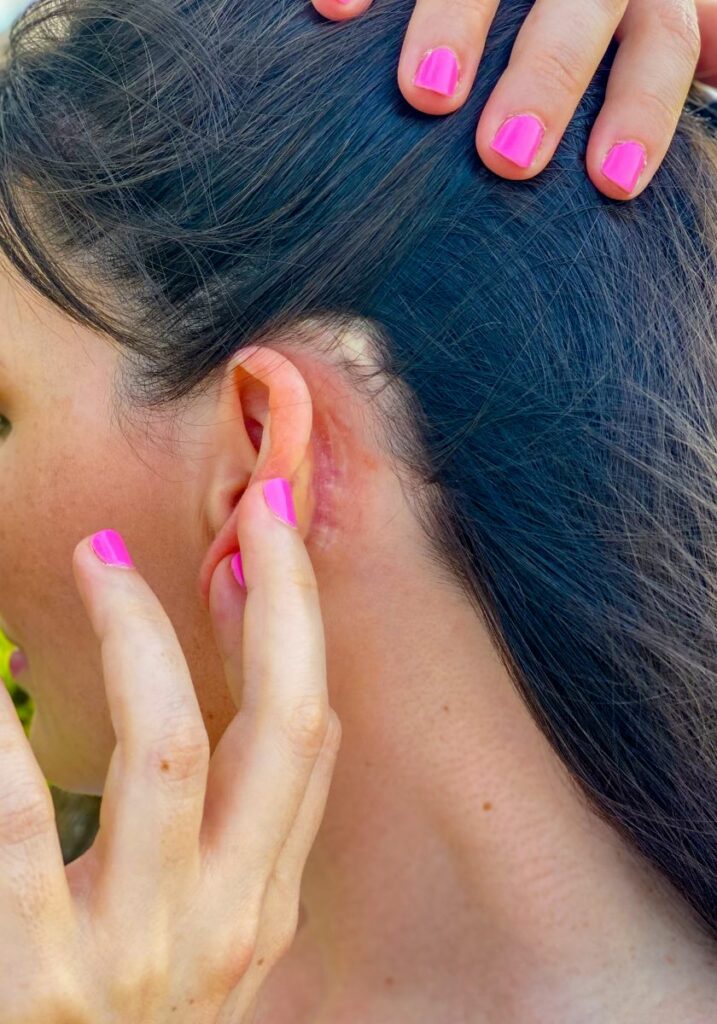
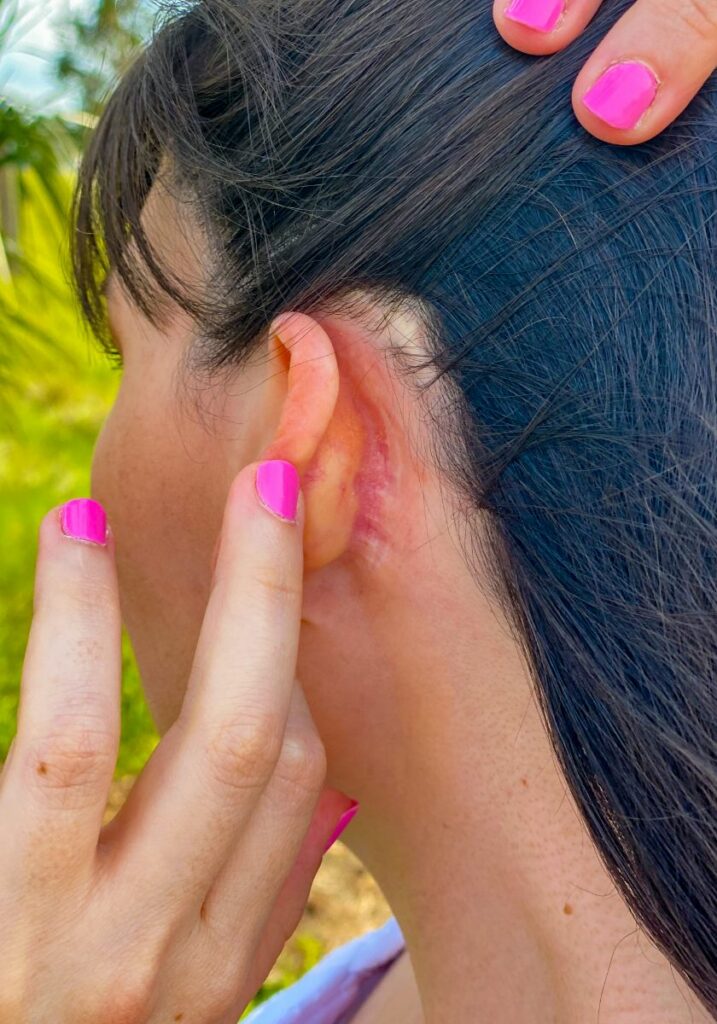
Growing up, I was born being able to hear ‘normally.’ I didn’t suffer any hearing loss. I had perfect hearing, but I suffered from ear infections. A doctor suggested my mom get tubes in my ears, and she did in hopes it would ease my ear infections. There were no problems with the surgery, but when I returned to the doctor, they found a polyp in my ear. I went into surgery again, where they removed and tested the tumor. It came back benign but left me with a large portion of my eardrum gone.
This led to my first ear drum reconstruction surgery. However, the procedure failed only a few days later, putting me on a path of needing eardrum reconstruction surgery after surgery because each time, this surgery failed to be successful. My hearing wavered, but overall, I could hear adequately. However, I always sat at the front of the class and learned how to lip-read to ensure I always knew what was being said.
When I turned thirteen, I got a mastoid infection which led me to have an extensive surgery where the infected bone was drilled out and removed. The doctor also tried again to repair my eardrum—days later, though I had another hole in my eardrum.
After this surgery—my twelfth in trying to fix the hole in my eardrum—it was decided that my eardrum just liked to have a hole. Over the next few years, I did have pain and infections, but it was better than another failed surgery.
When I got into my twenties, I went to the Mayo Clinic, where they told me about a new procedure: removing cartilage from my ear and repairing the hole in my ear drum. I decided to give it one last try as I didn’t want a hole in my eardrum due to infection.
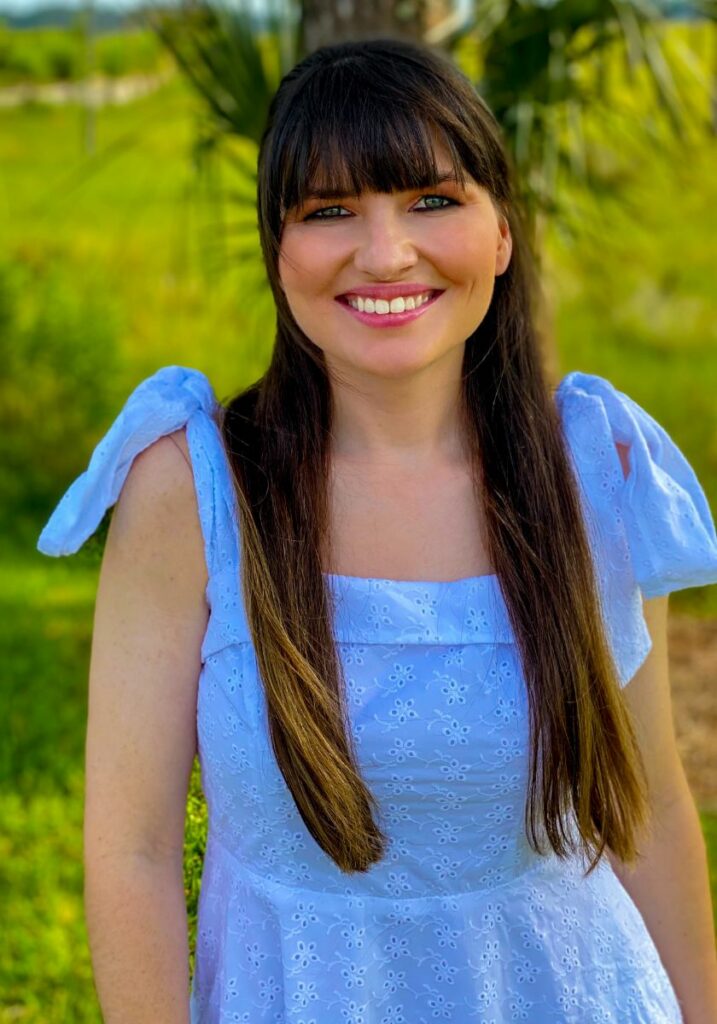
This surgery was very extensive. It took over three hours, but the surgery was a success. I no longer had a hole in my eardrum, and the pain I used to feel was gone.
However, it also left me with significant hearing loss.
Right after the surgery, I couldn’t hear anything. I couldn’t talk ‘normally’ because I couldn’t hear myself like I used to. I got depressed and kept praying as the weeks passed to hear ‘normal’ again. However, that never happened. While my hearing has improved and I regained some hearing, I still can’t fully hear properly. I have moderate hearing loss in my left ear.
Now, I need the television turned up higher, and I can’t hear when someone is talking to me in a crowd. It bothers me a lot because being unable to hear isn’t something anyone can see. Sometimes, when I ask someone to repeat something, they will look agitated, and it stops me from asking them to say anything again.
It has taken me a few years to adjust to not being to hear. Some days I struggle with hearing loss in my left ear. There are days the phone rings, but I can’t place the sound and miss the call. Or there is a ringing in my ear that will last a while, and I won’t be able to hear anything.
I hold my breath, hoping it isn’t the day I fully lose my hearing.
I have suffered a lot with ear surgeries. I am grateful I don’t have a hole in my eardrum, but it has been an adjustment to my lifestyle that I’ve had to make. I have been subscribed a hearing aide, but with so much scar tissue behind my ear and with the aide I need, I decided to hold off getting one for now.
While brainstorming articles to write on my website, I finally decided to share this story of my hearing loss. I thought it was important to tell the world what I’ve been through and wear my scars proudly. It has taken me years to be comfortable with this invisible disability, but I hope my stories inspire others with hearing loss to speak out.
Don’t let others who may talk louder at you when you tell them you can’t hear or get agitated when they have to repeat themselves stop you from sharing your story.
I’d love to hear from you all, so be sure to drop a comment below!
FAQ’s about hearing loss:
What are the 3 types of hearing loss?
1. Conductive Hearing Loss: This type of hearing loss occurs when there is a problem with the outer or middle ear that prevents sound from being conducted effectively to the inner ear.
2. Sensorineural Hearing Loss: Sensorineural hearing loss is the most common type of permanent hearing loss.
3. Sensorineural Hearing Loss: Sensorineural hearing loss is the most common type of permanent hearing loss.
What usually causes hearing loss?
1. Age.
2. Noise exposure.
3. Genetic factors.
4. Ear infections.
What are the 4 stages of hearing loss?
1. Mild Hearing Loss. In this stage, individuals have difficulty hearing soft sounds or sounds with low intensity.
2. Moderate Hearing Loss. In this stage, individuals have difficulty hearing soft sounds or sounds with low intensity.
3. Severe Hearing Loss. In this stage, individuals have difficulty hearing soft sounds or sounds with low intensity.
4. Profound Hearing loss. This stage represents the most severe degree of hearing loss. Individuals with profound hearing loss have little to no hearing
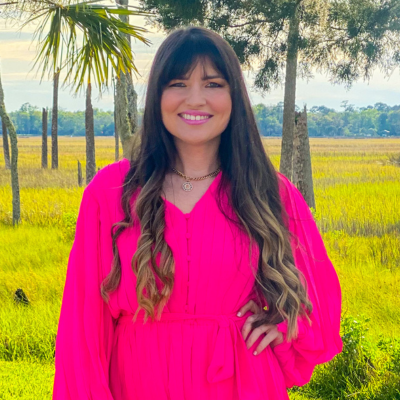
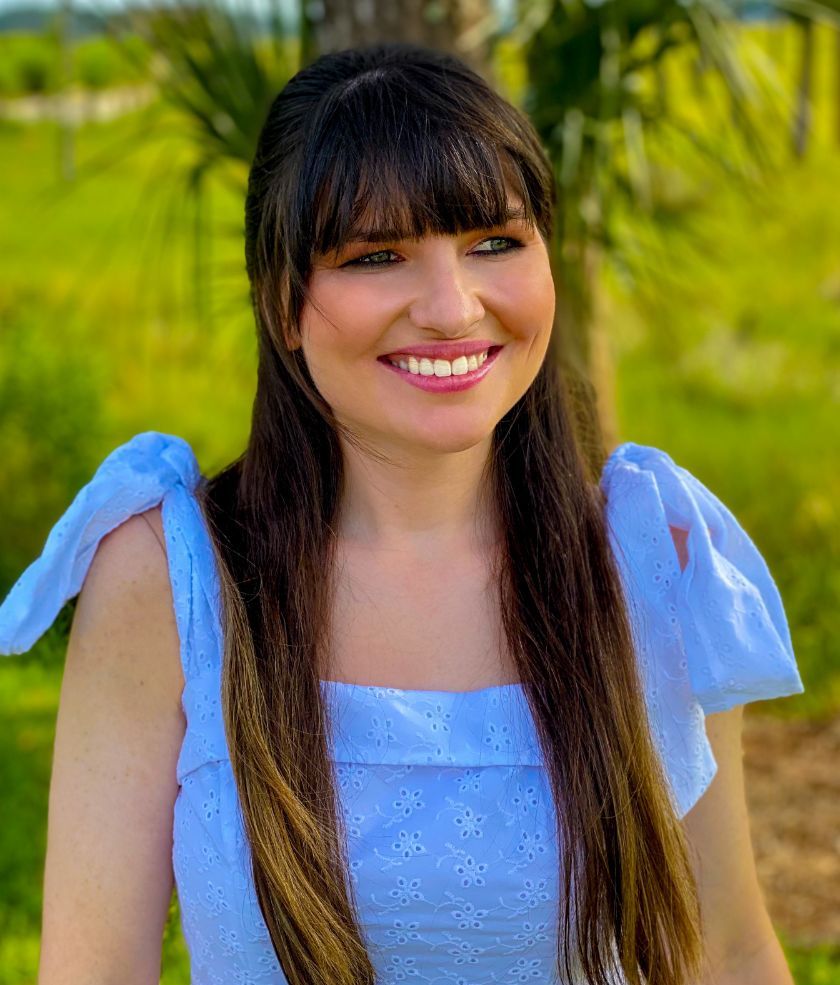




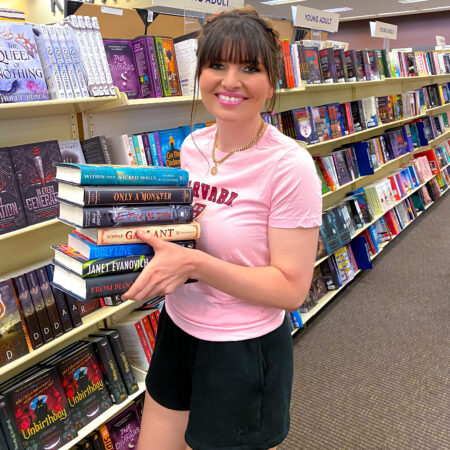


1 Comment
Carly-Rae, thank you for sharing your hearing journey. I’m so sorry you’ve had so many struggles with hearing loss. It sounds like you have tinnitus too, ringing in the ears. You’ve gone through so many surgeries and yet you’re still smiling. You have a beautiful smile.
My husband’s a senior and he now has a severe hearing loss. He just purchased new hearing aids, which he hopes will improve what he hears. He’s a big fan of audiobooks, because the sound goes right into his eardrums. Hearing aids have improved markedly, so maybe there are some out there that will help you.
And you are so right. People need to have patience with those who have hearing challenges. As a spouse, I went to a course with my husband to learn how I can support him,. It helped me understand his daily frustration. It made me slow my speech down, talk more clearly and directly, and not shout from another room, which I’m still guilty of doing at times. 🙂
You might be interested to know that my first two novels, A Cry from the Deep and The Rubber Fence, were recently released as Apple audiobooks. Apple produced them with a digital narrator (AI) that my husband says is very clear and understandable. He was shocked at what a good job they did with the narration. That’s saying something from a man with a severe hearing loss.
Good luck with your studies. And hope your hearing can be supported with the new technology out there.